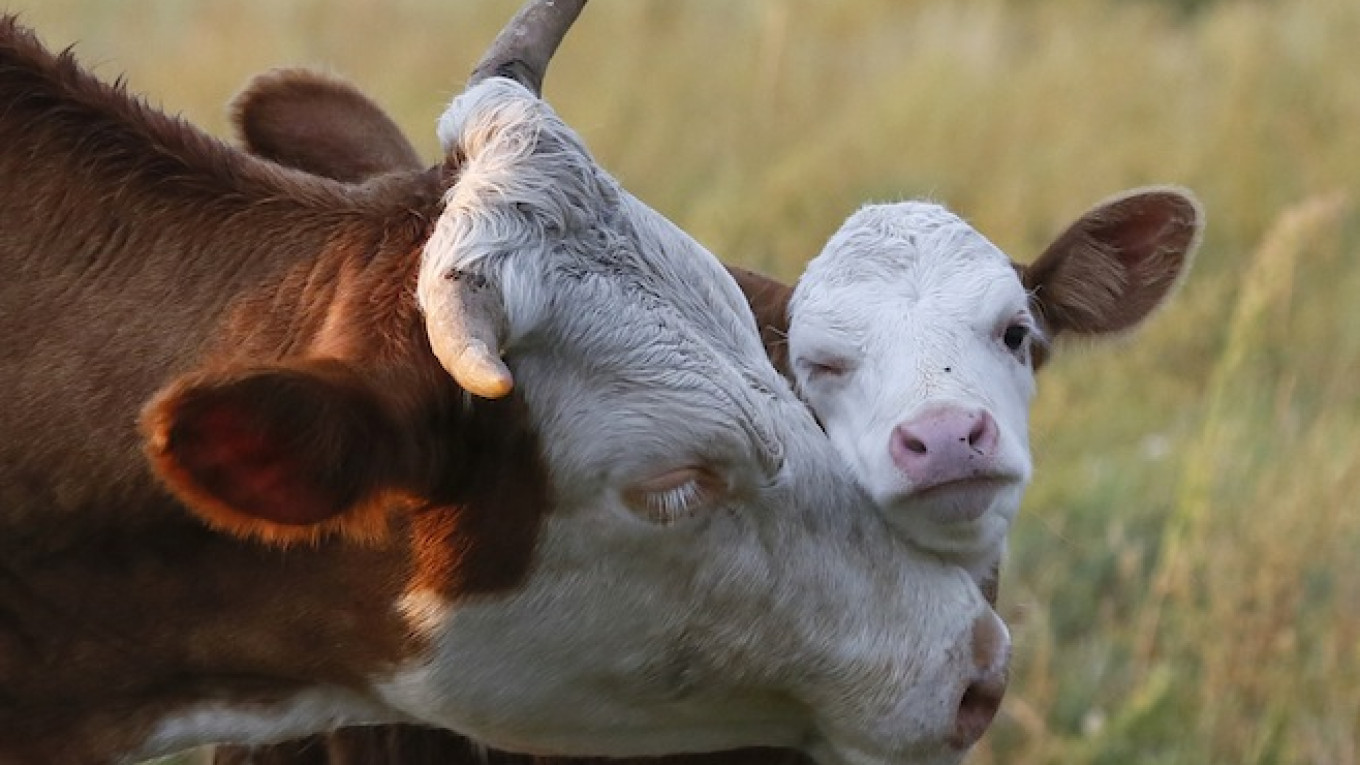Belarus, aiming to boost food exports to neighboring Russia, has canceled a ban on live cattle from the EU, Yuri Pivovarchuk, the head of veterinary surveillance at Belarussian agriculture ministry, said.
Minsk said the cancellation of the ban was not caused by its plans to increase exports to Russia, which restricted meat, dairy and some other products worth about $9 billion from EU, the U.S., Norway, Canada and Australia in early August in retaliation for sanctions over the Ukraine crisis.
Belarus said the cattle ban, imposed in 2012-2013, was canceled due to reduced concern over Schmallenberg virus, which infected many sheep and cows in some EU countries in 2011.
"On the basis of a letter from the World Organization for Animal Health ... we concluded this virus does not pose a threat to animals and their offspring now," Pivovarchuk said.
Belarus plans to increase food supplies to Russia by 15 to 40 percent this year, it has said. Exports of meat and meat products to Russia were worth $1.35 billion in January to May.
Belarus now accepts live cattle from Germany, Belgium, Netherlands, France, Britain, Italy, Luxembourg, Spain, Austria, Denmark, Croatia, Latvia, Hungary, Poland and Lithuania, Pivovarchuk added.
On Aug. 7, Russia banned all meat, fish, dairy, fruit and vegetable imports from the U.S., the EU, Norway, Canada, and Australia for one year.
Russia imported $17.2 billion of food last year from countries covered by the ban, of which $9.2 billion was in the affected categories, the International Trade Center, a joint venture of the UN and World Trade Organization, says.
Moscow has said it will allow imports from Belarus and Kazakhstan of food processed from Western raw materials as it seeks to cap domestic food price increases.
See also:
Russian Food Watchdog Stops Imports of Banned EU Fruit Via Belarus
A Message from The Moscow Times:
Dear readers,
We are facing unprecedented challenges. Russia's Prosecutor General's Office has designated The Moscow Times as an "undesirable" organization, criminalizing our work and putting our staff at risk of prosecution. This follows our earlier unjust labeling as a "foreign agent."
These actions are direct attempts to silence independent journalism in Russia. The authorities claim our work "discredits the decisions of the Russian leadership." We see things differently: we strive to provide accurate, unbiased reporting on Russia.
We, the journalists of The Moscow Times, refuse to be silenced. But to continue our work, we need your help.
Your support, no matter how small, makes a world of difference. If you can, please support us monthly starting from just $2. It's quick to set up, and every contribution makes a significant impact.
By supporting The Moscow Times, you're defending open, independent journalism in the face of repression. Thank you for standing with us.
Remind me later.


